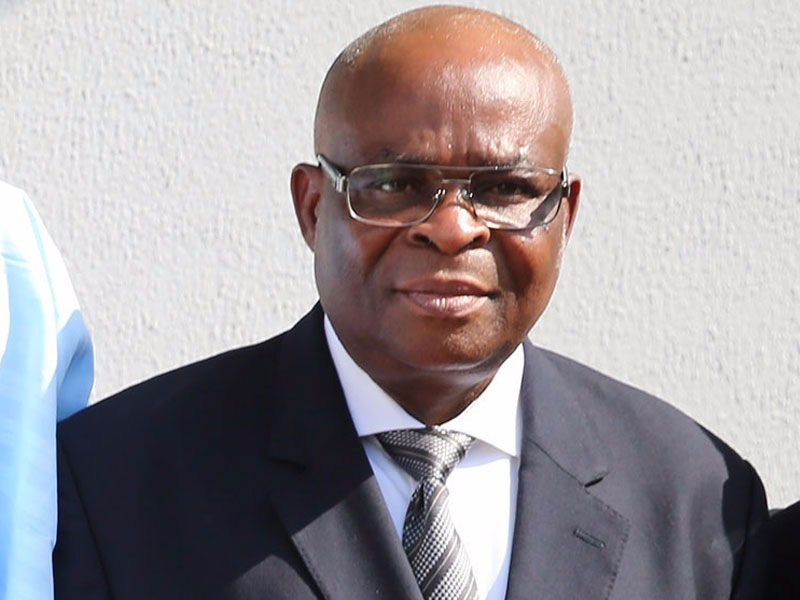The Abuja Division of the Court of Appeal Wednesday reserved judgment on four separate appeals suspended Chief Justice of Nigeria, CJN, Justice Walter Onnoghen, lodged before it.
A three-man panel of Justices of the appellate court, headed by Justice Stephen Adah, adjourned the cases for judgment after it heard from both Onnoghen and the Federal Government.
Represented by a team of lawyers, led by Chief Adegboyega Awomolo, SAN, Onnoghen told the appellate court that FG relied on “a questionable ex-parte order” and suspended him from office.
He told the court that the Mr. Danladi Umar-led Code of Conduct Tribunal, CCT, on January 23, surreptitiously issued an ex-parte order for his removal, a day after it had adjourned further proceedings on the six-count charge the FG preferred against him, till January 28.
He contended that it was legally wrong for the CCT to issue such ex-parte order when there was a pending motion questioning its jurisdiction to entertain the charge.
Onnoghen’s lawyer further argued that such order which had far reaching consequences that impacted on the rule of law, should not have been made ex-parte.
“The tribunal ought to have determined the issue of jurisdiction first. We also want to urge your lordships to examine the circumstances surrounding the granting of that ex-parte order.
“The processes showed that no counsel applied for the order, even though it indicated that the respondent’s lawyer was present when it was signed.
“We would not know if after the January 22 proceeding when the tribunal adjourned the case in the presence of all the parties, he later went back to the tribunal, behind the Appellant.
“We urge this court to interrogate the circumstances which we consider questionable and to set aside the ex-parte order that asked the Appellant to step aside as the CJN,” Uche submitted.
He prayed the appellate court to allow all the four appeals marked CA/A/44c/2019; CA/A/CA/A/63c/19; CA:A/70c/2019 and CA/A/114c/2019.
Meanwhile, a mild drama ensued after FG’s counsel, Alhaji Aliyu Umar, SAN, whose name appeared on the controversial ex-parte order, said he took exception to claim that he was the one that obtained it from the CCT.
“My lords I want to take exceptions that he said I went back after the initial adjournment. Who said I was there? Did the record say that I was there?” Aliyu queried.
Following permission from the appellate court panel, a copy of the process was shown to Umar who confirmed that his name was written on it.
At that juncture, Uche urged the court to take judicial notice of the development.
“My lords it is very instructive that he was not aware that he was there. What we are asking my lords is to find who moved that ex-parte application,” Onnoghen’s lawyer added.
Nevertheless, FG, urged the appellate court to dismiss Onnoghen’s four appeals as grossly lacking in merit, and to uphold all the preliminary objections it raised against them.
Umar maintained that the appellate court was bereft of sufficient materials that would enable it to successfully evaluate the circumstance that culminated to the ex-parte order that President Muhammadu Buhari relied on to suspend Onnoghen on January 25.
“We urge your lordships to dismiss the appeal as lacking in merit and also refuse the reliefs sought”, he added.
Specifically, Onnoghen, in his first appeal, is challenging the jurisdiction of the CCT to hear the charge against him.
He argued that being a serving judicial officer, FG, ought to have channeled allegations against him to the National Judicial Council, NJC, before it entered the charges.
Secondly, he queried the legal propriety of a ruling the CCT gave on January 14, wherein it decided to hear preliminary objection challenging the competence of the charge, alongside the motion FG filed for him to step-aside as both the CJN and Chairman of the NJC.
In his third appeal, Onnoghen, challenged the ex-parte order that led to his eventual suspension, while the fourth appeal is seeking to invalidate the warrant of arrest the CCT panel issued against him on February 13.
It will be recalled that the tribunal subsequently vacated the bench warrant after Onnoghen voluntarily submitted himself for trial on February 15.
FG had in the charge marked CCT/ABJ/01/2019, alleged that the suspended CJN failed to declare his assets as prescribed by the law, as well as maintained foreign bank accounts.
However, Onnoghen had since denied the allegations, even as the tribunal granted him bail on self-recognizance.

